As the Paris-based group enters its 10th year, Elisabeth d’Arvieu talks priorities, growth plans and industry pressures
It is almost a decade since Mediawan landed on the European landscape, complete with considerable financial backing and an appetite for growth.
Since then, the numbers speak for themselves: the company is now home to 85 labels in 14 countries that produced 480 hours of on-air drama last year, as well as 25 films in cinemas.
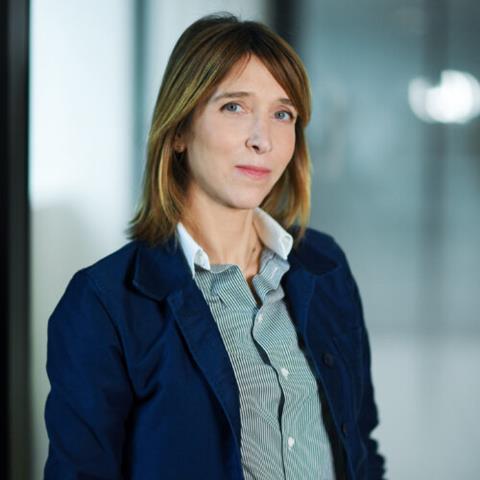
Its M&A activity has also been on an upward trajectory: UK-based Drama Republic was added in 2021; majority stakes in Brad Pitt’s Plan B and Florian Zeller’s Blue Morning Pictures came a year later in 2022; and a €100m drama development deal was struck with Paris-based investment firm Entourage Ventures in 2023.
Germany’s Leonine Studios was then formally brought into the fold in 2024, with its latest deal for Heartstopper and Slow Horses prodco See-Saw Films completing just last month.
They are deals that have cut through the clutter of daily M&A headlines and a similar narrative is emerging on screen. Netflix’s hit Adolescence, Series Mania’s buzzy coproduction Kabul, Sally Wainwright’s upcoming Riot Women and French show HIP have all emerged from Mediawan labels but with backers such as KKR, Société Générale, The Raine Group and Atwater Capital, such success and growth is a necessity.
So what’s next? Broadcast International speaks to Mediawan Pictures chief exec Elisabeth d’Arvieu about the state of the industry, its attempts to remain nimble and why France is a good place to base a global business.
It has been nearly 10 years since Mediawan first launched. Has your strategy shifted since then?
No, we have the same original strategy and original ambition, that is to find the best projects and the best talents and give their projects international reach. This has guided all of our acquisitions and partnerships. We’ve stayed agile in a changing industry and continue to adapt. We weren’t known for cinema before and, in just three years, we’ve become the top European studio in terms of independent film production.
The key is to stay just as nimble, to remain independent, to develop internally and to invest in our own IPs and brands. Entourage Ventures allow us more investment with gap financing and we have taken on other important partners, but we have the same strategy, the group’s foundational core is the same. It’s a long-term strategy. [Co-founder] Pierre-Antoine [Capton] has an entrepreneurial spirit - he comes from independent production. It’s at the centre of what we do, and allows us to adapt to a perpetually evolving market.
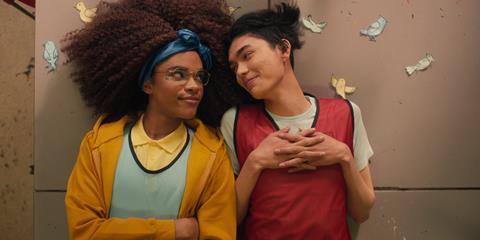
What drove the acquisition of See-Saw Films and your M&A activity over the past years with Plan B, Drama Republic, Misfits, Leonine Studios and more? What does this add to your repertoire?
Both artistically and strategically, many things matched with See-Saw, so the discussions came about organically. They have an artistic vision that is completely in line with ours, namely always wanting to work with top talent on premium projects. We were talking to them for a long time and over the years they have worked with many talents in the Mediawan family like Florian Zeller with The Son, and with David Michôd, who directed Plan B’s The King, and with whom See-Saw and Plan B are now making Wizards!.
Their strategic vision of the market is also consistent with ours. The company doesn’t just rely on its two founders, but they’ve developed a team of independent producers who each have their own line-ups allowing them to diversify in different genres and be more relevant in their own expertise.
They started with cinema and have become leading series producers. In our territories, we are also aiming to be multi-genre. In the UK, we were strong in scripted fiction via Drama Republic.
Now, we can reinforce our commitment to premium series and movies in the English language, but also have the capacity for development and production in the UK and Australia and potential for co-productions with our US and European affiliates. Plus, like us, they are always thinking about ways to leverage IP like The Neverending Story that is gearing up to be a major international franchise.
Are you looking to expand into the English-language market moving forward?
The English language is key because it helps the sales and therefore the exposure on the international market. Kabul was made in both the local language of Dari and in English – it was a choice to give it a chance to resonate internationally. The UK is a very attractive territory because there is immense writing talent and that’s what series are based on, so there is an extraordinary talent pool and also because it is a territory ripe for co-productions – we see it as a natural link between the US market and Europe.
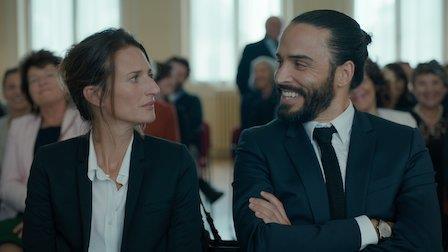
How is Mediawan navigating such a fast-moving industry, particularly given the long lead times on scripted productions and the shifting requirements of streamers?
Streamers have rapidly become a key partner. Today, our series lineup is 50-50 between streamers and broadcasters. As for long lead times, the key to their trust is that in each country, we can bring both networks and platforms the best talents they want to work with, from producers to screenwriters and directors. This reassures them and helps them to make decisions more easily and greenlight projects more quickly.
Examples include Nicole Taylor for Drama Republic’s One Day for Netflix, Will Smith for See-Saw’s Slow Horses for Apple, Jack Thorne for Plan B’s Adolescence for Netflix or Marco Bellocchio for Our Films’ Portobello for Max.
We also bring them strong brands and IPs that can accelerate decision-making and development time like Call My Agent! created in France by Mediawan’s Mon Voisin Productions, and now adapted in more than 12 countries, One Day written by David Nicholls and produced by Drama Republic, Family Pack produced by Radar Films for Netflix which is an adaptation of a successful European board game, Heartstopper that is based on a graphic novel or upcoming film Chien 51 produced by Chi-Fou-Mi that is an adaptation of Laurent Gaudé’s French best-seller.
Another key element to expediting the development process is the fact that as a European studio, we can accompany our producers in financing internally and independently their development, so we come to both streamers and broadcasters with packages already in advanced stages. For both series and films, our structure allows us to reduce development times.
Can you share a recent example of this expedited process?
The story behind the future adaptation of Fresh Water for Flowers, based on Valerie Perrin’s worldwide bestseller illustrates this strategy. Palomar’s team wanted to adapt the book for a while - it is a huge success in Italy with more than 1 million copies sold – but the author preferred to be faithful to the story and shoot in Burgundy. To make this possible, we built a coproduction between Palomar and our French company 24 25 Films with Jean-Pierre Jeunet attached to the project as director and Leila Bekhti starring, then we came to the market with a project that was already pre-developed. That’s how we won Valerie Perrin’s trust and convinced her to give us her beautiful book.
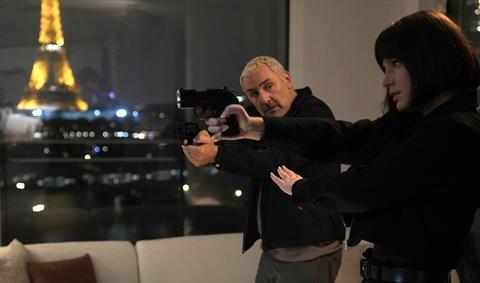
Mediawan has had a slew of successes recently, but the film and TV markets are undeniably struggling. Are you still optimistic about the state of the industry?
The market is tough - we can’t deny it. The television industry, particularly in the US, is complicated. Four years ago, after Covid, cinema was struggling, but in France, 2024 was a strong year at the box office. I am optimistic because we are lucky to be European and to have a market where co-productions are encouraged and where talents are protected. I’m remaining optimistic because for me, the climate is ripe for the perfect storm of such European creation.
We are also lucky to be able to work with exceptional talents. We had eight films in selection at Cannes last year. Look at Riot Women at Series Mania. Sally Wainwright is one of the UK’s biggest talents and combined with Drama Republic and the BBC, it is a premium package that Mediawan Rights in collaboration with Entourage Ventures are bringing to international audiences. It is another example of the power of Mediawan’s ecosystem, as is the current success of Adolescence on Netflix, both among critics and audiences.
The market is complicated, but our positioning both creatively and financially allows us to stay optimistic. I am not blindly optimistic, but I am consciously and confidently optimistic that we are seeing and will continue to see the fruits of our labour based on the strategy we’ve been constructing for years.
How exactly does Mediawan work with its producers across the globe?
We are here to support them in their international development and ambitions by offering co-productions with Mediawan’s producers and assisting them in worldwide distribution. Our new show Kabul is a good example of Mediawan’s strategy to work with major European talent, finance their projects and sell them globally. 24 25 Films joined us in 2023 as film producers, but they had been wanting to develop a series on an international scale for a long time, and to expand into new creative territories. They came to us with this ambitious story written by two famous French screenwriters Olivier Demangel and Thomas Finkielkraut. Thanks to the support of the group, we assisted them in the development of the project and in securing the financing. The Alliance (France Televisions, ZDF and Rai) was onboard from a very early stage and Mediawan Rights and Entourage Ventures, who are selling it internationally, boarded for gap financing and allowed us to accelerate the process.
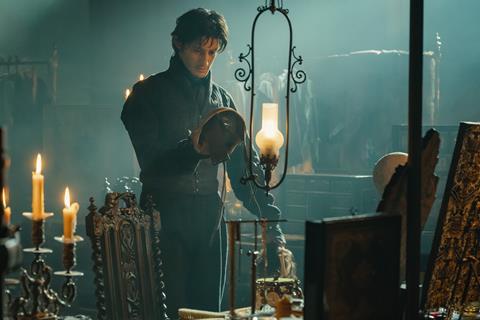
How has France’s streamer levy and production quotas affected the industry as a whole and Mediawan as a business?
Since the 1980s, France’s system has supported independent production through several different measures from quotas to protecting intellectual property. Such an ecosystem has also contributed to the emergence of major European groups that were originally French. Since 2021, we’ve seen a significant increase in investments from global streamers that has been a virtuous circle for the entire industry. We’ve seen the remarkable success of creativity of French productions in both films and series from Call My Agent! to HIP to The Count of Monte-Cristo, not to mention The Bureau, Emilia Perez and Anatomy of a Fall.
What can other countries learn from the French system?
It is not a question of giving lessons, but in Europe, France is a model of the successful exportation of our savoir-faire and IPs. The success of French projects internationally is incomparable in Europe and it is proof that our system works. It aids French creation, it supports independent production and helps studios like Mediawan to develop and expand.
It is part of a very favourable ecosystem. It’s the perfect European storm. We have access to an extraordinary talent pool in France and throughout Europe, we have some of the best shooting locations in the world from France to Italy and Spain, and the regulation systems in place like tax credits are truly the perfect storm for Europe in terms of both creation and production. We have the infrastructure to tell European stories from a European perspective and then give them exposure on an international scale.
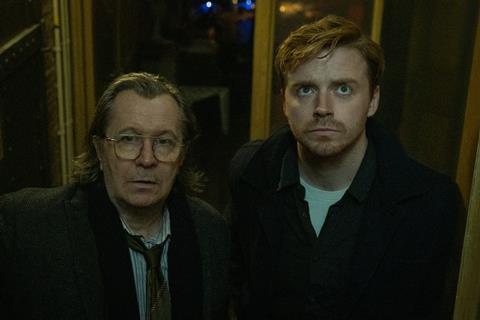
Who do you see as your competition? Are you looking to compete with the likes of Banijay, Federation etc?
I don’t want to compare Mediawan to anyone else. We’re doing something that is unique, that is the model that we have created and the fact we can assemble all of our diverse talents from different countries under one group. None of our companies and partners have ever left the group - they have all stayed on since our creation. We help them to embody their ambitions.
We have respect for the creativity and independence of our producers and we bring them all the advantages of being in a big group, that is to accelerate development and to have access to more ambitious projects and partners across the globe. They discuss projects and co-produce with each other while remaining completely independent in terms of creative choices.
Where is Mediawan’s growth going to come from over the next two/five years?
Growth will come from series and cinema, which means it will come from our talent and in particular the development of our group IPs and franchises which are very important.
For example, from new seasons or global adaptations of our big shows Call My Agent! and HIP that will be drivers in the next year. We just finished a Spanish version of Call My Agent!, we are working on one in Mexico co-produced with Eva Longoria, we’ll make a feature film in French. We are expanding Miraculous, See-Saw is busy working on The Neverending Story. Fresh Water For Flowers will be a major film in 2026. Plan B is developing a line-up of series filmed in Europe. They acquired rights to The Man With A Thousand Faces and will launch a series with Call My Agent! showrunner Fanny Herrero. There was a major bidding war, but because it is Plan B and they had confidence in their vision of the project, and packaged it with the original French showrunner Herrero, it is moving forward. Our growth will come from the continued development of these franchises.
How has KKR’s backing enabled Mediawan’s expansion and do you expect this support to remain in the coming years within this global context?
KKR has been a partner for five years and is one among our important partners in addition to Atwater Capital, Raine, Société Générale, BPI, and MACSF. They support our investments in talent and projects European they are ready to invest in the long term.








No comments yet